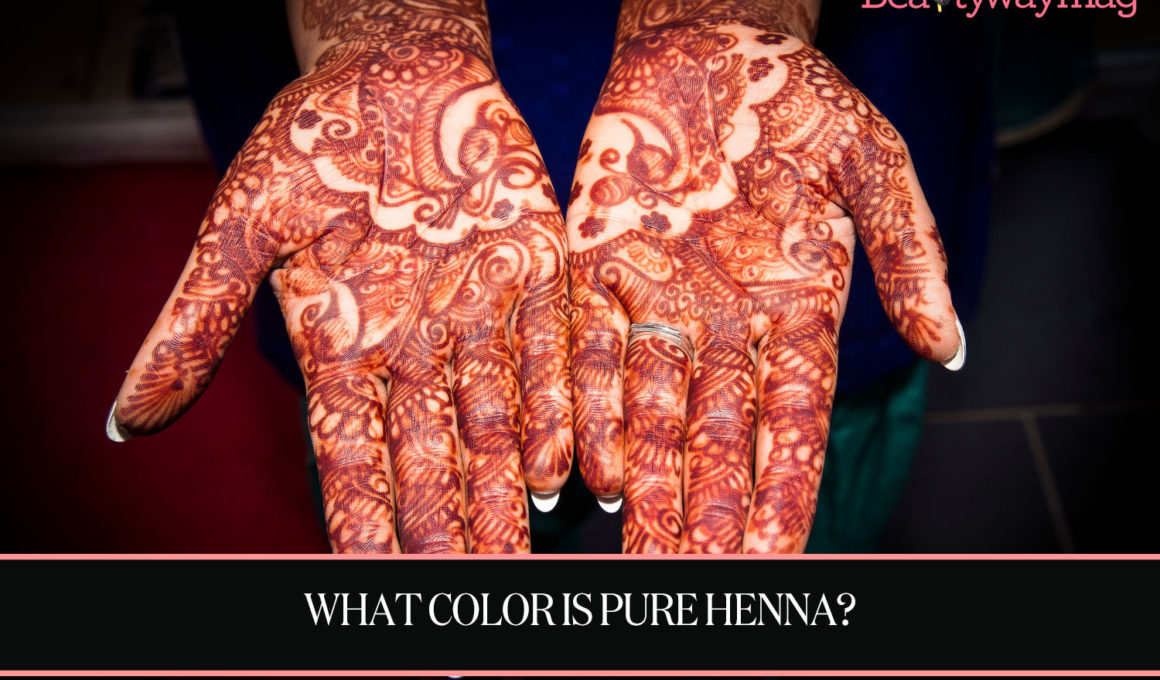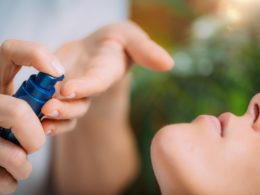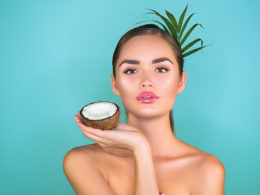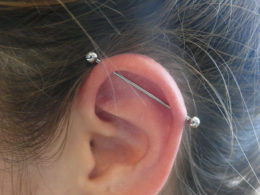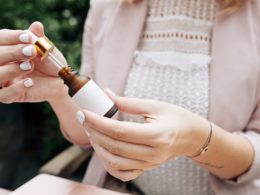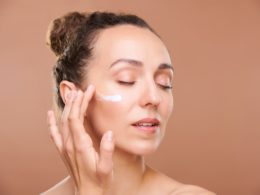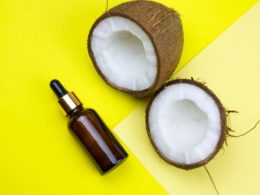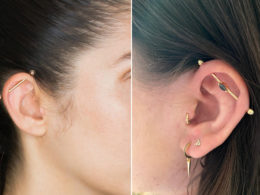Table of Contents Show
Tattoos are exciting, but there’s a giddy feeling that you can only get from henna paintings.
The process of getting a henna painting on your skin is soothing, exciting, and absolutely worth trying repeatedly.
But since henna comes in different colors because some are processed and sold, not everyone knows the actual color of pure and unprocessed henna. This article will clear up that and provide you with detailed information necessary to understand.
Pure henna comes in the color red, it is a bright red to be precise. When you touch henna, and it appears to have bright red stains on your hand, then you are using pure henna. Pure henna can also come in other shades of red, but any other color asides from those imply that the henna has been processed.
Henna has been passed down for centuries as a natural herb that can be used for beautification. It can be applied to the hair and skin and it also has medicinal purposes since it is derived from a natural herb.
If you ever want to know how a tattoo would look on your skin, it is best to try replicating your preferred design using henna as a temporary tattoo.
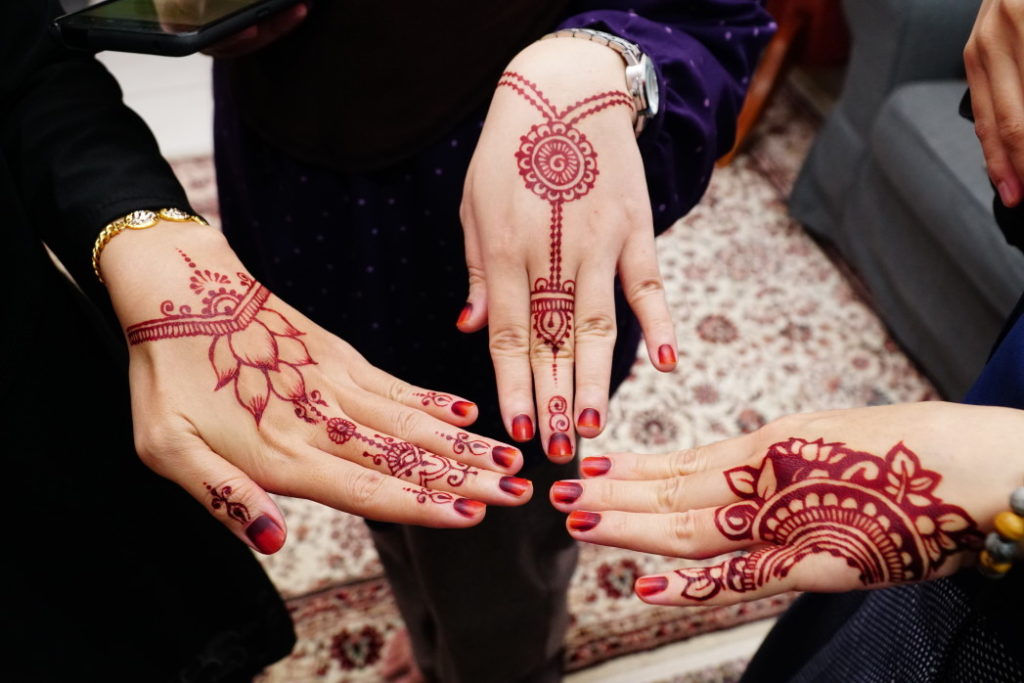
Pure Henna Color Explained
Henna is known to be a natural paste that is traditionally whipped out when there is a call for celebration, which could include an engagement ceremony, a traditional wedding, a birthday, and other celebrations.
This widespread use of henna made people begin to manufacture and sell processed or packaged henna, and because these exist, not everyone knows the real color of pure or untainted henna.
Henna is gotten from a flowering plant known as Lawsonia Inermis; the leaves of this plant have a natural red coloring pigment that is made into the powder that we all refer to as henna. This powder is then mixed to make a paste that is applied to the skin or hair for temporary tattoos or semi-permanent hair dye.
The color of this purely made henna after the leaves of the Lawsonia Inermis are crushed, is a natural bright red.
When henna comes in any shade that is not a variation of bright red, it implies that it is impure. That means that it has been tainted with additives or preservatives to ensure that it lasts longer on shelves being sold as a product.
Henna that comes in other colors asides from the natural bright red is not spoilt or dangerous for the skin, it has just gone through an unnatural manufacturing process. It is still safe to be applied to your skin, fingernails, and hair. It just has preservatives that have made it take on a different color.
Below are some ways to know that your Henna is pure;
- When you purchase henna, if the powdered form is green then it is pure because the leaves of a henna flowering plant are green.
- If the packaging of your henna contains any other ingredients asides from natural henna leaves, then it is impure.
- When you mix your henna powder with water to get a henna paste, if the paste turns a green color or any other color that is not a shade of red then it is impure.
- When you perceive your henna powder, if it gives you anything other than a grassy smell, then it is impure.
- Henna is a natural herb and is safe for all skin types, if you use henna and you get an allergic reaction then the henna you purchased is impure.
Benefits of Using Henna
Henna has been in use and existence since the bronze age, it was used by different civilizations such as the Egyptians for beautification and healing. Henna is a natural and highly beneficial herb that is believed to have anecdotal or Ayurvedic properties. Below are the benefits of using henna for your body and hair;
1. Henna Strengthens the Hair
Using henna to dye your hair increases the strength of your hair instead of wearing it as other artificial permanent hair dyes would. Henna could also help in sealing your hair cuticles to avoid breakage and give the hair a natural and beautiful shine. Using henna to dye your hair is also a great way to prevent dandruff infestations in your hair.
2. Henna Reduces Hair Loss
Henna was used as a remedy for hair loss in earlier days, by making a henna mixture and applying it to the hair. This henna mixture can be made by mixing henna oil or juice with yogurt it any other curds. You should use this henna mixture with other treatments to hasten your hair recovery; this mixture can also be used by people treating baldness.
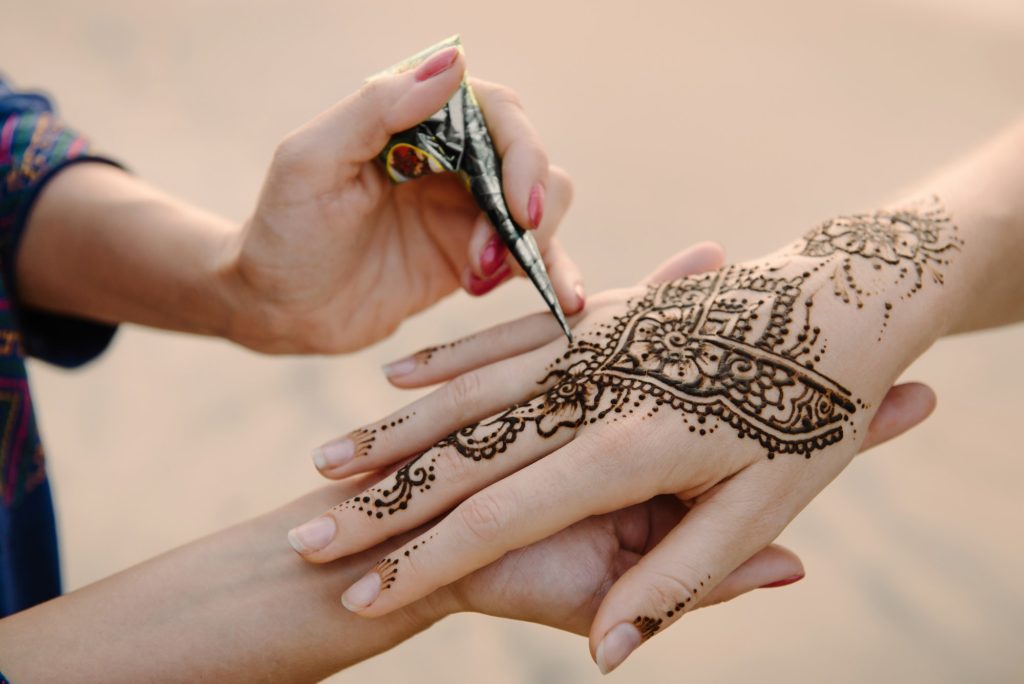
3. Henna Improves Nail Quality
Using henna for nails is a secret remedy for healthier nails that many people do not know about. Your nail health is very important and to keep your cuticles strong and free from bacterial infections, or transferring bacteria to your body through your mouth.
By drinking or applying henna, you can prevent your nails from suffering from bacterial infections, inflammation, irritation, and pain as well as keep them from cracking easily.
4. Henna Has Anti-aging Properties
Everyone loves natural herbs with anti-aging properties because it means that you would not have to struggle with side effects after continuous usage. Henna oil is believed to have an astringent as well as an antioxidant that can be applied to the skin to aid in the reduction of wrinkling and aging.
Henna oil can also be a great remedy for clearing up scars on your skin and other blemishes gotten from injuries or acne. Asides from having an astringent and antioxidants, Henna oil also boasts of antiviral and antibacterial properties that will keep the skin rejuvenated and young with continuous application.
5. Henna Has Wound Healing Properties
In the olden days, Henna was used for healing wounds other than to beautify the hair or skin. Henna is known to have healing properties that can protect your skin from bacterial infections and get rid of infections and getting rid of inflammation.
Henna is said to possibly have natural cooling abilities that can take the heat away from the skin, keep away pathogens from a healing wound, and prevent sunburns when it is applied to the skin.
6. Henna Has Detoxifying Properties
Consuming the liquid gotten by soaking the barks of leaves from a Henna flowering plant is known to help detoxify the liver and spleen. By consuming this liquid from Henna plants, you can considerably improve the health of your liver and spleen.
You might need to see a doctor or herbal specialist before ingesting this henna liquid, but once it is approved and you are given directions that you follow to the latter, your liver will be able to clean out toxins better and this will keep you healthier.
7. Henna Has Anti-inflammatory Properties
In earlier times, the juice derived from henna plants was used to relieve headaches by simply massaging them directly into the skin. This is possible because of the anti-inflammatory properties that henna is known to possess.
This also allows henna to provide better blood flow in the capillaries and reduce the tension that builds up in them while experiencing a headache or migraine.
8. Henna Has Antipyretic Properties
Henna is said to have antipyretic properties which means that it contains an agent or it is an agent that can be used for relieving fevers. Applying henna oil directly to the skin of persons suffering from high fevers helps to reduce their high temperature. By cooling their temperature, their body metabolism can function better to get rid of the fever.
Frequently Asked Questions
How can you tell if henna is pure?
You can tell that henna is pure if it has a bright reddish color when mixed with a paste, if it has green color as a powdered form, if it smells grassy and if the ingredients sections show that it contains added chemicals.
What color does pure henna make hair?
When you apply henna to your hair, it should give it an auburn color because its natural color is bright red. However, you can add other darker or lighter powdered dyes to your henna mixture to achieve other colors that you would prefer.
What is the best henna color?
Henna could come in red or black, red henna is best because it is safe for the skin and hair while black henna is dangerous for the skin and hair.
Is henna orange or red?
Henna is naturally red, if your henna is orange then it is of a lower quality, and it might have been tainted with some chemicals.
Summary
It is quite a struggle to know when henna is pure or impure because it is made by different brands and marketed to the public.
While some companies might not alter the natural color and content of henna, other companies may alter it in other to create more shades or preserve it. However, the original color of henna that has not been tainted is bright red.
Keep reading;

